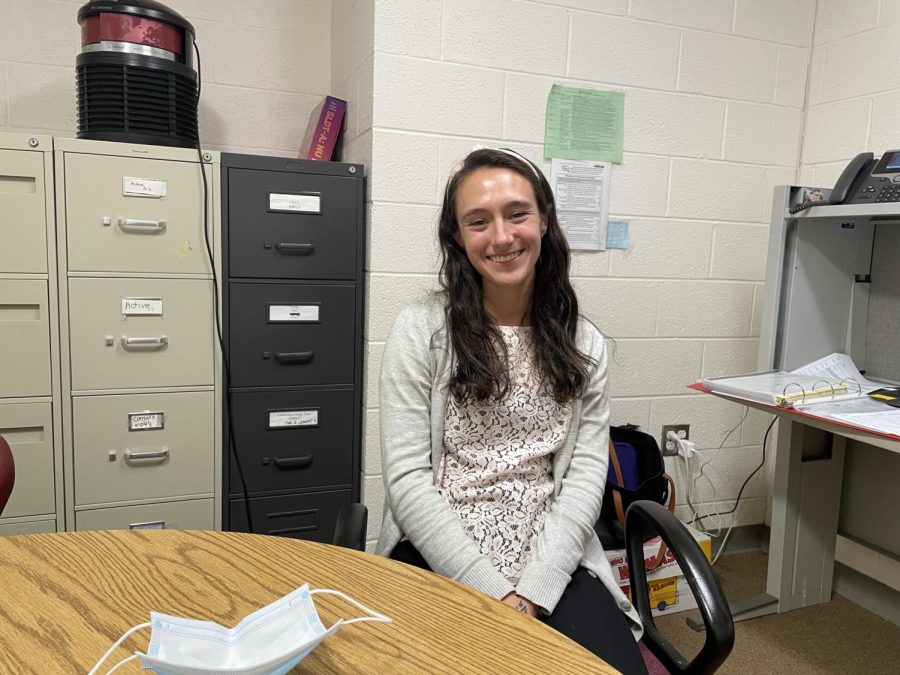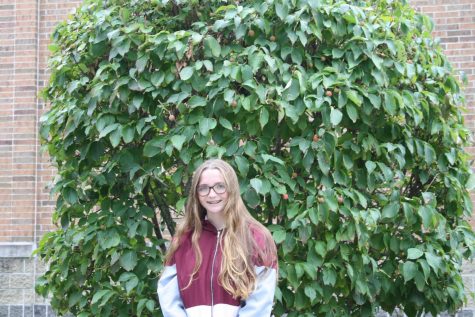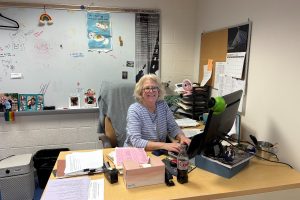Say hello to Jennifer Sabourin, WA’s newest speech assistant
Speech Assistant Jennifer Sabourin is her office
November 2, 2021
Jennifer Sabourin is the new speech assistant at Westford Academy. She grew up in Sterling, Massachusetts and took this job as a step before graduate school.
Q: Where did you grow up?
A: Sterling, Massachusetts.
Q: What are your hobbies outside of school?
A: I like to go hiking. Over the summer, I went to Acadia National Park in Maine and hiked up Cadillac Mountain to see the sunrise.
Q: What sports did you play growing up?
A: Softball and soccer.
Q: What made you decide to be a speech assistant?
A: This is kinda a step before potentially going to grad school for speech pathology, kind of trying it out to see if that’s what I want to go to grad school for. I did some work with speech in college so just building off of that.
Q: What is your favorite and least favorite part of being a teacher?
A: Probably that it starts really early.
Q: What has been your favorite teaching moment so far in your career?
A: Get to know you Uno with some students. That was fun, just to hear some background on them.
Q: When was a time that a student made you proud or when you were proud to be a teacher?
A: I have one student who is on the quieter side. So, the first couple of sessions, it was a little tricky to get them to interact. But this week, he has done a lot better […]. We were joking, and he shared about his weekend. So we finally got him to open up a little bit.
Q: Who would you say is your role model?
A: I think my supervisor now, Julie. She really gets into her students and wants to help them and has a nice passion for speech. So that’s really encouraging.
Q: How have past experiences with teachers changed your teaching style or how you approach teaching?
A: I had one teacher in high school who would pass out quizzes, and it became a joke where she would pass it out and say, “Don’t get scared, like it’s just a quiz, it’s fine, it’s not a big deal.” So, that […] has stuck with me, through college and the rest of high school and stuff, and […] now I’m like, “Don’t get scared. It’s not a big deal.”
Q: How do you think teaching has changed how you look at the world?
A: I think you kind of learn why students are doing certain things. So it can […] make you pause and take a moment to think, “Okay, what is what’s going on, whats’s the root issue, what’s happening?” rather than immediately jumping to a conclusion.








